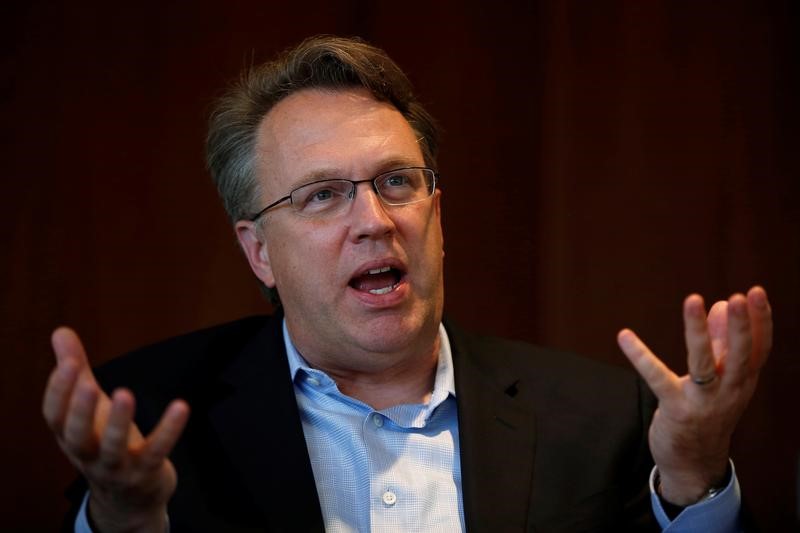SACRAMENTO (Reuters) - San Francisco Federal Reserve Bank President John Williams on Tuesday called for gradual U.S. interest-rate hikes over the next few years to keep the economy from overheating and ultimately falling into recession.
With the unemployment rate at 4.7 percent, the U.S. economy has reached full employment, Williams said, adding that inflation is on track to reach the Fed's 2-percent goal over the next couple of years.
"Looking ahead, further gradual increases in the target fed funds rate will likely be appropriate to bring monetary policy back to a more normal setting consistent with an economy at full strength," Williams said in remarks prepared for delivery at Sacramento State University. "If we wait too long to remove monetary accommodation, we hazard allowing imbalances to grow, requiring us to play catch-up, and not leaving much room to maneuver."
The Fed last month raised its target range for short-term interest rates by a quarter of a percentage point, to 0.5 percent to 0.75 percent, and signaled it would probably raise rates three more times this year.
Williams did not say in his prepared remarks how many rate hikes he would favor, nor did he address, as have several of his colleagues, the potential for fiscal policy under the incoming administration to speed growth, which could force the Fed to raise rates even faster.
But Williams did warn against the dangers of pushing the economy beyond its natural potential growth rate, which these days he said is about 1.5 percent to 1.75 percent. Williams said he expects about that rate of growth this year and next, adding that faster growth risks too-high inflation, asset-market bubbles and, eventually, a correction.

"In arguing for gradual increases in interest rates over the next few years, I’m not aiming to stall the economic expansion. In fact, it’s just the opposite: My aim is to keep it on a sound footing," said Williams, who does not vote on policy this year but participates in the Fed's regular rate-setting discussions. "I fear that if we allow the economy to overshoot this mark by too much, eventually we will need to reverse course to bring the economy back on track."